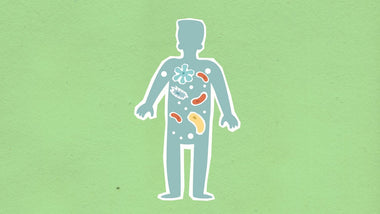Is intermittent fasting good for your heart?

Based on the idea that it helps you lose weight and improve health in general, intermittent fasting is a hot trend. Which means I frequently see people who are following some sort of intermittent fasting protocol in my office. However, I always need to have my patients specify exactly what they’re doing because the term “intermittent fasting” can mean different things to different people.
“Intermittent fasting” is often used loosely, as an umbrella term to describe any eating pattern where calorie intake is restricted for periods of time. This can range from time restricted eating (where calorie intake occurs over a specified number of hours during each day) to much longer periods during which food is withheld (planned absence/marked reduction of calorie intake for 24 hours to weeks at a time).
The most popular protocol is probably the 16:8 time restricted approach where all calorie consumption occurs during 8 consecutive hours each day. But is this actually good for us? The honest answer is that we don’t know for sure – and it may be really hard to ever come to definitive conclusions about this approach, or any intermittent fasting protocol for that matter. There are just too many variables to account for!
But that doesn’t stop the media for pouncing on any interesting finding.
For example, last month, new research suggested that there could be a dangerous side to the trend: The preliminary study, which is not yet peer reviewed or published but was presented at a conference of the American Heart Association, suggested a significantly increased risk of dying from cardiovascular disease when eating within an 8-hour window.
The study might have included 20,000 people followed up for 8 years on average, and it may have gotten a lot of press coverage, but the researchers could only look at self-reported dietary patterns encompassing two days of food consumption, the nutritional quality of which was not defined.
As counterbalance, another small study, published last month in Nature Metabolism, showed that fasting promotes significant, healthy changes to organs such as the heart -- but, only after three days without food. That’s far beyond the 16-24 hours that most proponents of intermittent fasting adhere to.
So does this change my recommendations on the practice? No. I still maintain that intermittent fasting is an OK approach to weight loss, IF you don’t overeat when you’re not fasting. If you continue to eat the same amount of calories, but simply shift the timing of those calories, you’re unlikely to lose weight.
The same goes for your health: Regardless of when you eat, you need to make sure you’re consuming high quality heart-healthy foods.
Whether your goal is to lose weight or improve health in general, intermittent fasting is not appropriate for everyone. If you are on diabetes medications, if you are pregnant or lactating, if you’ve ever had an eating disorder, or if you have an advanced health condition of any type – this approach is probably not for you. If in doubt, always check with your healthcare provider.
And never lose sight of the fundamentals. You can never go wrong eating a whole foods, plant-based diet in reasonable amounts.

Tested & Proven Results.
- Cardiologist formulated
- Supported by over 500 publications
- Clinically-proven, in a double-blind randomized trial with Mayo Clinic and The University of Manitoba
80% of participants lowered their cholesterol in just 30 days. With just two servings per day, Step One Foods offers a proven-effective way to naturally lower LDL (bad) cholesterol.
Get heart health tips and articles like this, delivered right to your email.
New articles every week.
You may also like...

The Heart of the Matter: The Engine That Makes Whole-Body Health Possible

The New Food Pyramid: What It Gets Right (and What It Misses)

You don’t need to avoid foods with cholesterol…except for these


